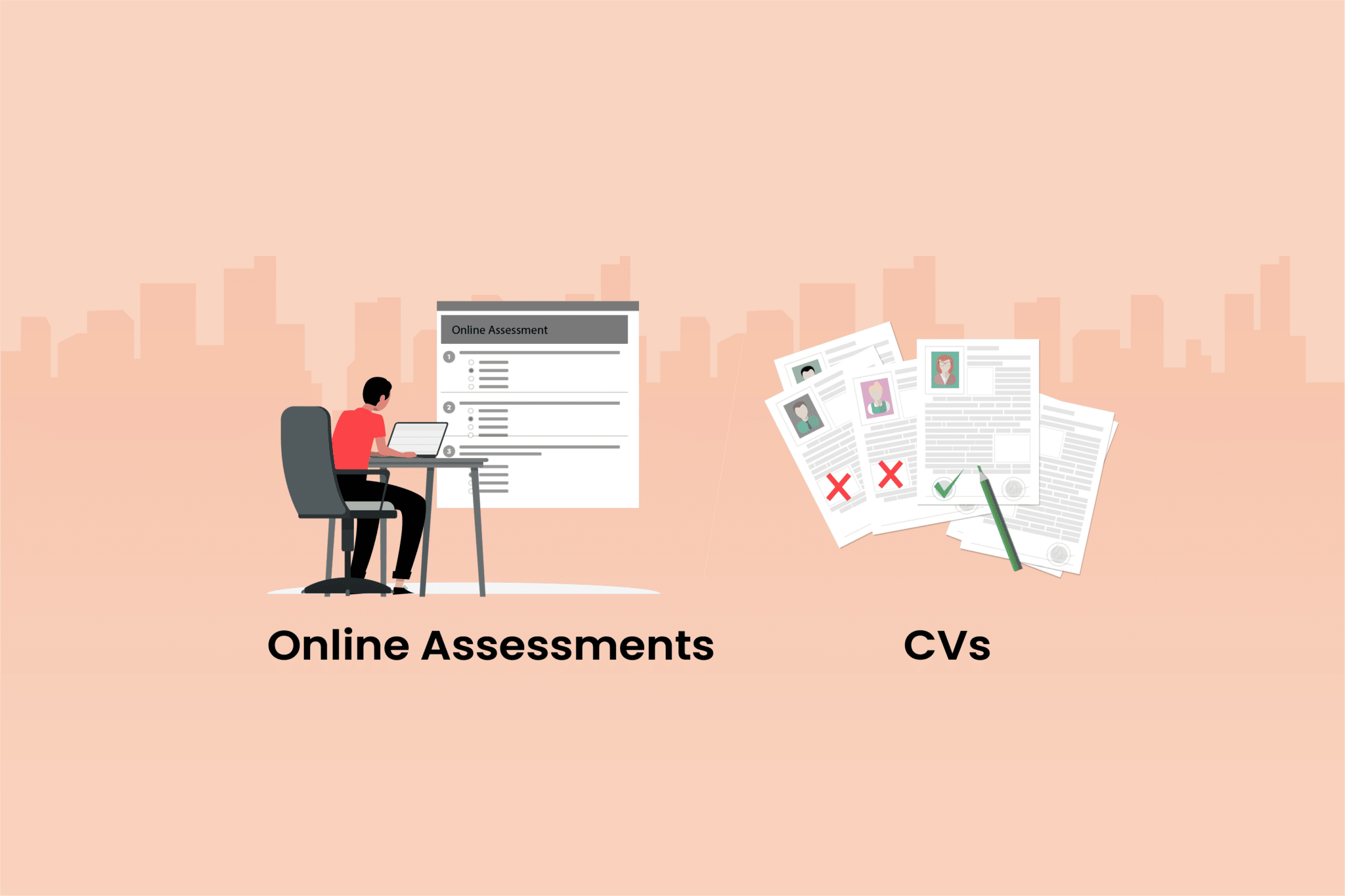Data analysts are in high demand as they are the ones who go through hundreds if not thousands of data every day and try to analyze the patterns and trends to predict possible outcomes.
According to U.S bureau of labor statistics, the median annual wage given to data scientists was $103,500 in May 2022.
In this blog, we’ll delve into the top seven recruitment trends that are currently reshaping the way organizations identify and hire data analyst professionals. From the rise of remote work opportunities to the increasing importance of data ethics, these trends are not only transforming the hiring process but also influencing the skills and qualifications expected from data analysts. Let’s explore how these trends are shaping the future of data analyst hiring.
Embracing remote work opportunities
The workforce landscape has been undergoing a significant transformation in recent years, and the trend of remote work is here to stay, even in the realm of data analysis.
One of the prominent trends in data analyst recruitment is the increasing acceptance of remote work opportunities. Companies are realizing that talent knows no geographical boundaries, and by offering remote positions, they can tap into a broader and more diverse talent pool. This shift not only benefits employers but also provides data analysts with the flexibility they desire.
Remote work allows data analysts to work from the comfort of their homes or any location they choose. This flexibility can lead to increased job satisfaction and improved work-life balance, which are key factors in attracting and retaining top talent.
However, it’s essential for businesses to establish effective remote work practices, including robust communication channels and data security measures, to ensure that remote data analysts can perform their roles effectively. As we explore other trends in data analyst hiring, it becomes evident that the ability to embrace remote work is just one piece of the puzzle in building a successful data analysis team.
Pro tip: Try organizing a daily feedback meeting with your remote employees. It keeps them motivated, productive and aware about work goals.
Prioritizing data ethics and privacy
In the era of data analytics, where information is a prized asset, safeguarding data ethics and privacy has become a paramount concern. At Testlify, we recognize the significance of upholding these principles in data analyst hiring.
One of the notable trends in data analyst recruitment is the growing emphasis on data ethics and privacy. As organizations collect and analyze vast amounts of data, there is an increasing responsibility to ensure that this process is conducted ethically and respects individual privacy rights.
Data analysts are entrusted with handling sensitive information, and any breach of trust can have severe consequences. Hence, businesses are now seeking candidates who not only possess strong analytical skills but also exhibit a deep understanding of data ethics and the legal frameworks surrounding data privacy.
Compliance with data protection regulations like GDPR and HIPAA is not just a checkbox but a fundamental requirement. Hiring data analysts who are well-versed in these regulations ensures that data is handled with the utmost care and legal requirements are met.
Furthermore, businesses that prioritize data ethics and privacy not only build trust with their customers but also mitigate the risk of costly data breaches and legal repercussions. As we delve into other recruitment trends, it becomes evident that the integrity of data analysts is as crucial as their technical proficiency.
Embracing AI-powered screening in data analyst hiring
In the rapidly evolving landscape of data analyst hiring, technology is playing a significant role in streamlining the recruitment process. Testlify, as a proponent of data-driven assessments, recognizes the importance of embracing AI-powered screening tools.
One of the prominent trends in data analyst recruitment is the adoption of AI-powered screening solutions. Traditional resume screening and candidate evaluation can be time-consuming and subject to bias. AI tools, on the other hand, can analyze vast amounts of data swiftly and objectively, allowing recruiters to identify the most suitable candidates efficiently.
These AI-driven tools use algorithms to assess candidates based on predefined criteria, including skills, qualifications, and experience. By automating the initial screening process, recruiters can focus their time and efforts on engaging with the most promising candidates.
Moreover, AI screening tools help mitigate unconscious bias in the hiring process by making decisions based solely on data and qualifications. This not only promotes fairness but also ensures that the best candidates are selected based on merit.
However, it’s essential to strike a balance between AI screening and human interaction to maintain a personalized and empathetic approach to recruitment. As we explore other trends in data analyst hiring, it becomes clear that technology is a valuable ally in identifying top talent.
Implementing skill-based assessments
In the quest for identifying top-tier data analysts, the recruitment process has evolved to place a stronger emphasis on skills and qualifications. Testlify, as a leading talent assessment tool, understands the significance of implementing skill-based assessments in data analyst hiring.
A prominent trend in data analyst recruitment is the shift towards skill-based assessments. Instead of solely relying on resumes and interviews, businesses are turning to structured assessments that evaluate a candidate’s practical abilities in data analysis.
Skill-based assessments, like those offered by Testlify, enable recruiters to gauge a candidate’s proficiency in key areas such as data manipulation, statistical analysis, and data visualization. These assessments provide a more accurate and objective measure of a candidate’s capabilities, helping businesses identify candidates who possess the precise skills needed for the role.
Furthermore, skill-based assessments align the hiring process with the actual job requirements. This ensures that candidates who advance in the recruitment process are well-equipped to excel in their roles from day one, reducing the time and resources spent on training.
By incorporating skill-based assessment tools into their hiring strategies, businesses can make informed decisions and select data analysts who not only meet but exceed expectations. As we explore other trends in data analyst hiring, it becomes evident that skill-based assessments are a cornerstone of effective talent acquisition.
Fostering diversity and inclusion
In the dynamic field of data analysis, diversity and inclusion are no longer optional but essential components of successful teams. Testlify, committed to equal opportunity, recognizes the importance of fostering diversity and inclusion in data analyst hiring.
A noteworthy trend in data analyst recruitment is the prioritization of diversity and inclusion. Businesses are increasingly aware of the benefits that diverse teams bring, including a wider range of perspectives and innovative problem-solving approaches.
Recruiters are actively seeking candidates from diverse backgrounds, including different genders, ethnicities, and experiences, to build more well-rounded data analysis teams. Inclusive hiring practices not only reflect a commitment to social responsibility but also contribute to better decision-making and problem-solving in data analysis.
Moreover, diverse teams are better equipped to understand and address the needs of a diverse customer base, which can be a significant competitive advantage in today’s global marketplace.
However, fostering diversity and inclusion goes beyond recruitment; it requires creating an inclusive work culture where all employees feel valued and empowered. As we delve into other trends in data analyst hiring, it’s evident that diversity and inclusion are integral components of building high-performing data analysis teams.
Pro tip: Try remote assessment tools to hire candidates without any unconscious bias and streamline your recruitment process.
Valuing hybrid skill sets
The evolution of data analysis has given rise to a new breed of data analysts who possess hybrid skill sets. Testlify, dedicated to identifying top talent, acknowledges the value of individuals who blend technical expertise with business acumen.
A significant trend in data analyst recruitment is the demand for candidates with hybrid skill sets. While technical proficiency remains essential, businesses are increasingly seeking data analysts who can bridge the gap between data science and business strategy.
Analysts with hybrid skill sets can not only crunch numbers but also translate insights into actionable recommendations for business growth. They understand the technical aspects of data analysis while also possessing the communication and strategic thinking skills necessary to influence decision-makers.
This trend reflects the evolving role of data analysts from mere number crunchers to strategic partners who can drive the organization forward. Such individuals are instrumental in ensuring that data-driven insights are effectively integrated into the decision-making processes of businesses.
Hence, recruiters are actively looking for data analysts who can wear multiple hats and add value beyond data analysis. As we explore other trends in data analyst hiring, it becomes evident that hybrid skillsets are a sought-after asset in today’s competitive job market.
Leveraging analytics for HR
In the quest for data-driven decision-making, businesses are turning to analytics not only for their core operations but also for optimizing their HR processes. At Testlify, we understand the power of data analytics in reshaping the recruitment landscape.
A significant trend in data analyst recruitment is the utilization of analytics for HR purposes. Organizations are recognizing the value of data in streamlining their hiring processes, improving candidate experiences, and enhancing overall recruitment efficiency.
Data-driven HR analytics can provide insights into every aspect of the hiring journey, from sourcing and screening candidates to onboarding and retention strategies. By analyzing recruitment data, businesses can identify bottlenecks, optimize their recruitment funnel, and make data-backed decisions to attract and retain top talent.
Moreover, predictive analytics in HR can help organizations forecast their future talent needs and develop proactive strategies to meet those requirements. This proactive approach reduces the time-to-fill positions and ensures that the right talent is always available when needed.
As we delve into other trends in data analyst hiring, it’s clear that leveraging analytics for HR not only transforms the recruitment process but also contributes to the overall success and growth of businesses. Data analysts with expertise in HR analytics are becoming increasingly valuable assets in today’s competitive job market.
Conclusion
In conclusion, the world of data analysis is in a state of perpetual change, and so too is the recruitment landscape for data analysts. As we’ve explored in this blog, the top seven trends in data analyst hiring are steering the course of this dynamic field.
By staying informed and aligning hiring strategies with these trends, businesses can ensure they have the right data analysts in place to navigate the complex data landscapes of today and tomorrow. The journey to building data-savvy teams has never been more exciting, and these trends serve as a roadmap for success in data analyst hiring.
Elevate your recruitment game with Testlify. Sign up for free and schedule a 30-minute demo call today to start hiring top-notch candidates efficiently.








